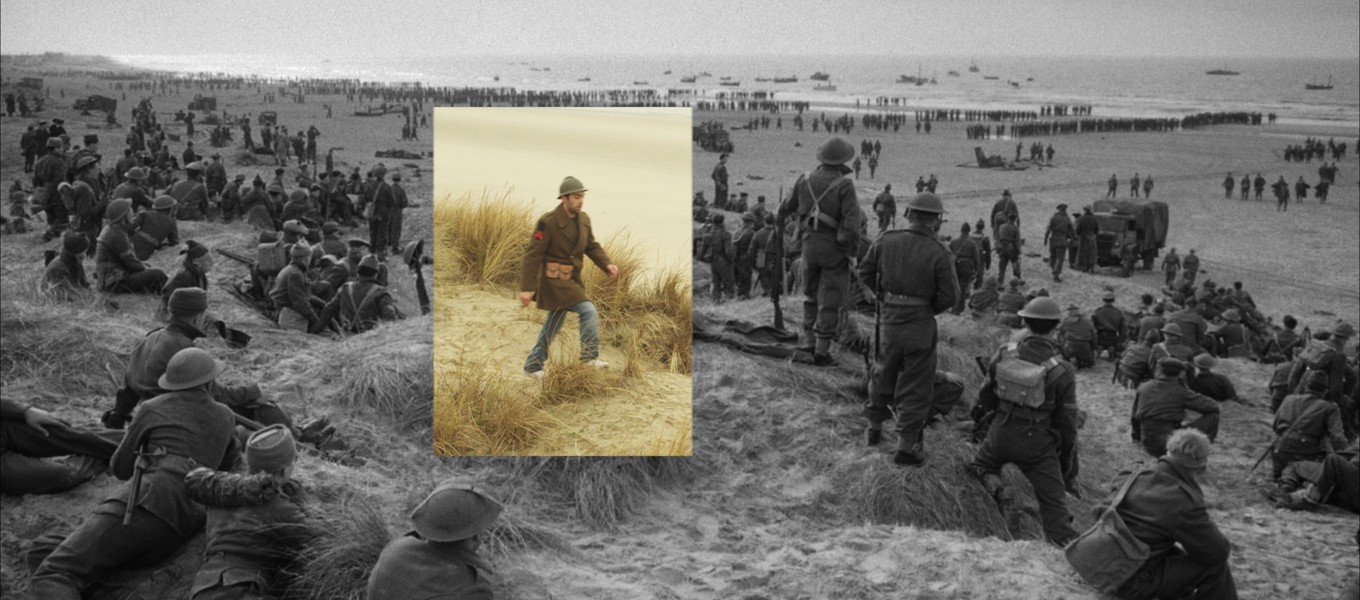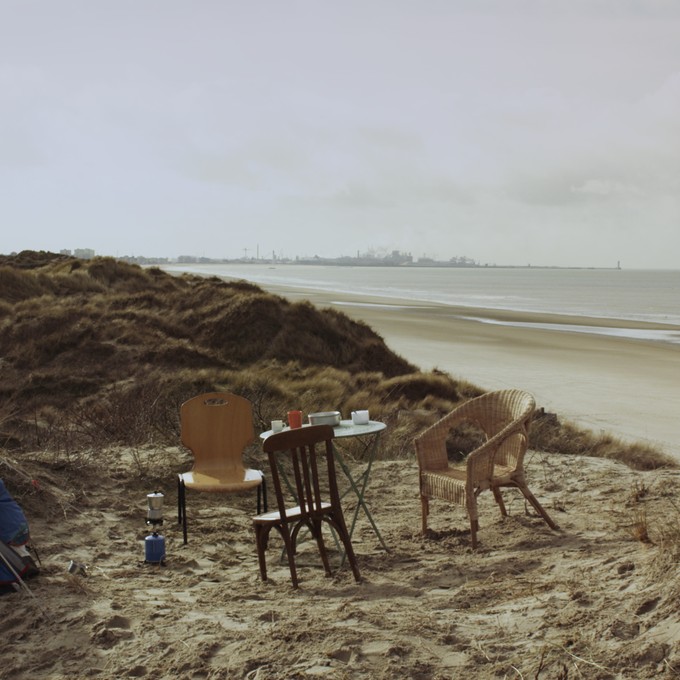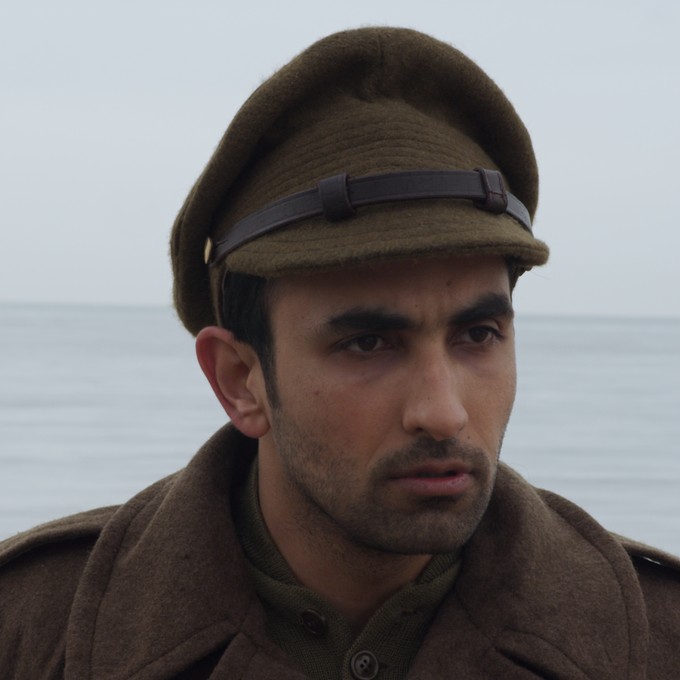Raphaël Botiveau
London Calling - Film - 15min - 2017
presented as part of the exhibition panorama 19



“Looking elsewhere to enable here,” wrote the recently deceased political anthropologist Georges Balandier in a definition of his discipline. To get a handle on the media frenzy around the “migrant crisis,” London Calling offers a detour through history and the movies.
Co-written with Hélène Baillot (University Paris 1), the film presents a group of amateur actors, onetime inhabitants of the Calais “Jungle,” playing the parts of Jean-Paul Belmondo and his pals in Weekend in Dunkirk. Made by Henri Verneuil in 1964, the movie set in spring 1940 shows a detachment of French soldiers trapped in the “Dunkirk pocket” searching for a way
to flee across the Channel to England.
This parallel between a present drowned in 24-hour rolling news and a major but neglected episode in history offers a reminder of what is possible in extremis. Today, in what is a time of peace, the fate of the several thousand people caught between Europe and England seems an insurmountable problem. Yet, nearly eighty years ago, the British and the French managed, in just nine days, to rescue no less than 340,000 men trapped in Dunkirk by the Nazi advance. Confronting the present with history should not be reduced to that vain wish of “never again.” It also serves as a reminder of what, together and against all odds, we were once capable.
Now forgotten the “Spirit of Dunkirk” was long celebrated on the other side of the Channel as a supreme example of resistance and collective selflessness in the face of adversity.
Raphaël Botiveau
Trained in social science (political studies, sociology, African and Postcolonial Studies) in four countries (France, South Africa, the United States and Italy), he worked in journalism and economic expertise before devoting himself to teaching and research. He earned his Ph.D. from the Université Paris 1 Panthéon-Sorbonne (France) and La Sapienza Università di Roma (Italy) in 2014, with a dissertation on trade unionism and negotiation in the gold and platinum mines of post-apartheid South Africa. It is through fieldwork and scientific writing that his practice of inter-disciplinarity matured, along with an interest in exploring alternative forms of representation – namely cinema. Enrolled in Le Fresnoy, Studio national des arts contemporains (Tourcoing), he pursues his research at the Institut des mondes africains (Paris) and the CHERPA research centre (Sciences Po Aix en Provence).
